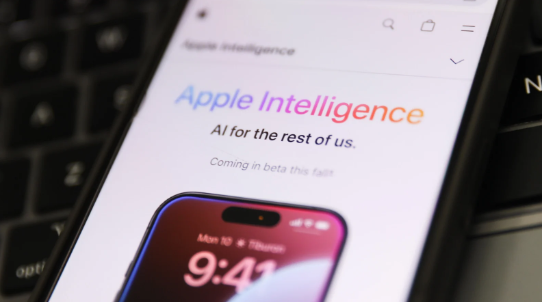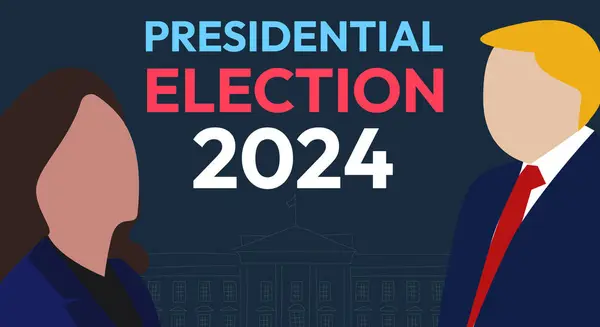The race for the most competent and best-functioning artificial intelligence system has begun with the rise of AI technologies among competitors and consumers, and Apple is no stranger to competing.
In June 2024, Apple announced Apple Intelligence, its artificial intelligence (AI) system, at the Worldwide Developers Conference, and it was released to the public in October 2024.
Apple’s AI features will be available for iPhone 16, iPhone 15 Pro, and iPhone 15 Pro Max, as well as devices supporting iOS 18.1, iPad 18.1, and macOS Sequoia 15.
Apple AI will provide users with writing tools, including proofreading, summarizing, and editing features. These new tools are integrated into apps and can be accessed when tapping on text, transforming iPhone texting and communication.
Additionally, priority messages will be moved to the top of email inboxes. Summary and smart reply options will be available, simplifying the task of sifting through and replying to emails. Summaries will have an option to show up as a notification on the lock screen, providing easy access to emails.
Siri, the Apple assistant, has been updated to work alongside Apple AI. Siri will now appear as a glowing light when activated and reply in a more conversational manner. Siri will follow commands and requests more easily, maintaining context if a user misspeaks, and rephrasing requests. Users will now have the ability to type into Siri.
Photos will also face new features with Apple AI. A new Clean Up tool will allow users to remove unwanted objects in photos. Users will also be able to search for photos by inputting descriptions.
A new Focus feature, Reduce Interruptions, will allow users to filter notifications, prioritizing important notifications and silencing less urgent ones.
Lastly, the Notes app will now feature audio and phone call transcriptions, with Apple Intelligence-generated summaries.
Despite its developed processing and summarizing skills, Apple Intelligence fails to overcome the scrutiny of fact-checking. Recently, Apple Intelligence has provided users with incorrect summaries of news articles, risking the spread of misinformation and false representation of news broadcasters.
For instance, Apple Intelligence generated a headline for a BBC news article about Luigi Mangione, the accused killer of UnitedHealthcare CEO Brian Thompson, stating Mangione had shot himself.
In another news article headline summary of a New York Times story, Apple Intelligence falsely claimed Israel’s Prime Minister, Benjamin Netanyahu, was arrested.
Apple responded to the failures of its AI algorithm, stating “Apple Intelligence features are in beta and we are continuously making improvements with the help of user feedback.” Apple then suggested an upcoming software update, which will further clarify the use of Apple Intelligence in news article summaries.
Despite the ever-present criticism surrounding Apple’s artificial intelligence system, artificial intelligence itself is still a new, developing technology, hence the occasional mishaps and errors.
Specifically, hallucinations, the colloquial term used to refer to AI inaccuracies, are common among rising AI technologies.
Furthermore, companies like Google, X, and Samsung have introduced their own AI systems, some facing more backlash than others.
Google’s Gemini has infamously suggested users with glue as a pizza ingredient, and told a college student to “please die.”
X’s Grok inaccurately claimed Indian Prime Minister Narendra Modi had lost an election, which has yet to take place.
Samsung’s new Galaxy AI was announced last February and is expected to reach over 100 million users, yet hallucinations and mishaps are most probable with the system, as well.
Among the controversies and inaccuracies, Apple is determined to continue providing users with unique, updated features. After the initial release of AI features, Apple released Genmoji, which will allow users to create custom emojis, and Playground, which will allow users to prompt Apple Intelligence to generate cartoon-like images and illustrations from inputs of text descriptions. ChatGPT will also be available to integrate and collaborate with Siri.
Yet, new changes in technology and updated AI systems are likely not increasing Apple’s popularity with users. Other systems, like Google’s Gemini and OpenAI’s ChatGPT, are much more influential among consumers.
Although Apple Intelligence may seem incomparable to other AI systems, experts, including Dan Ives, a managing director and senior equity analyst at Wedbush Securities, believe Apple Intelligence may have a significant impact on Apple-related product sales. Apple’s eagerness for a successful AI system integrated into the Apple ecosystem undoubtedly defines the culture of a new era in technological advancements driven by competitors and consumers alike.

































